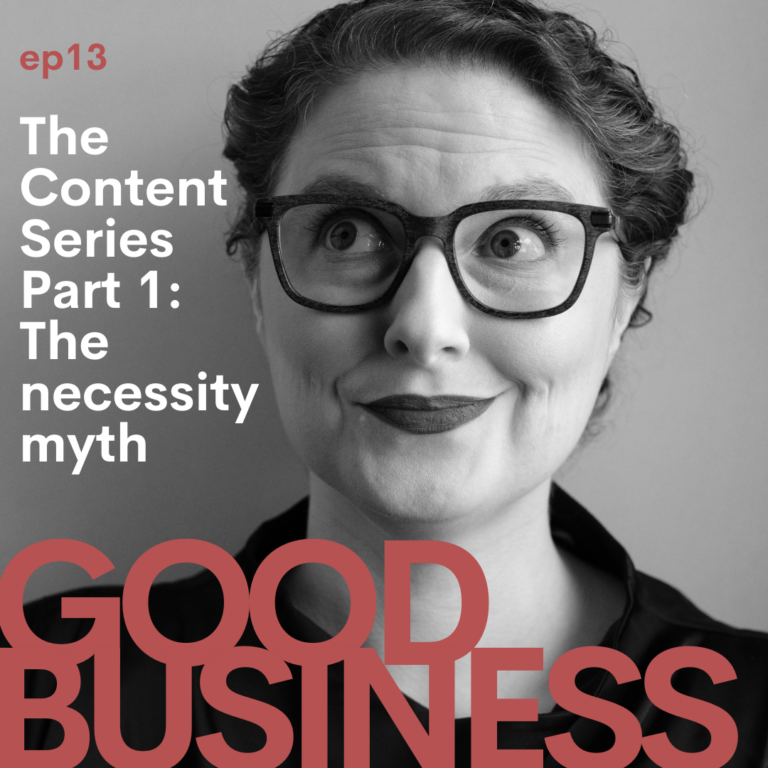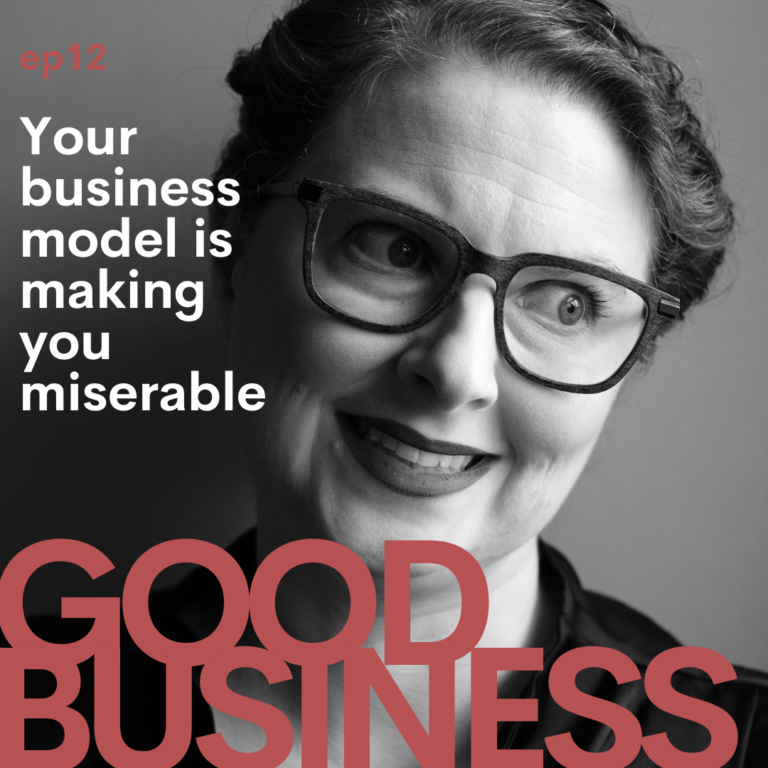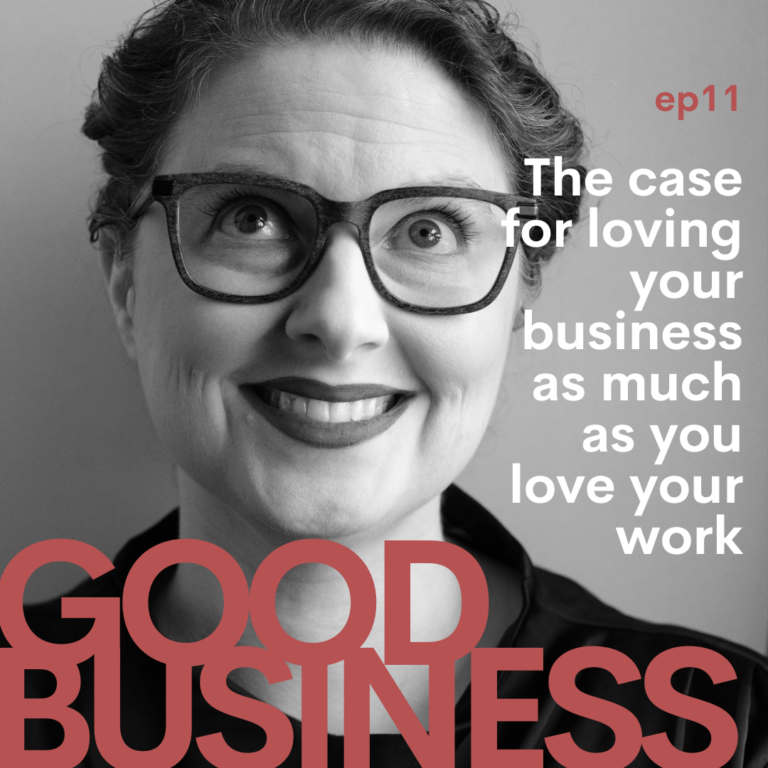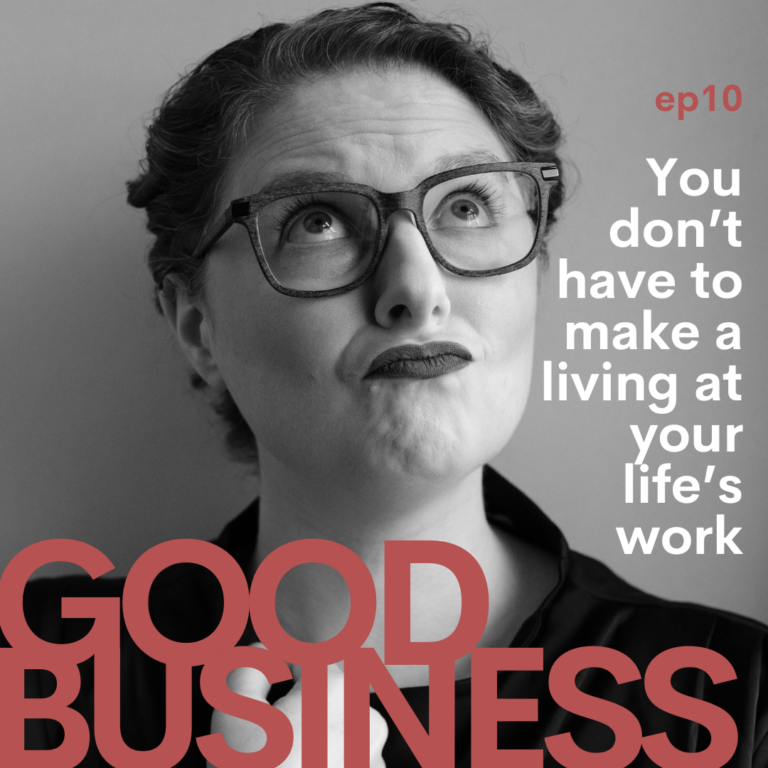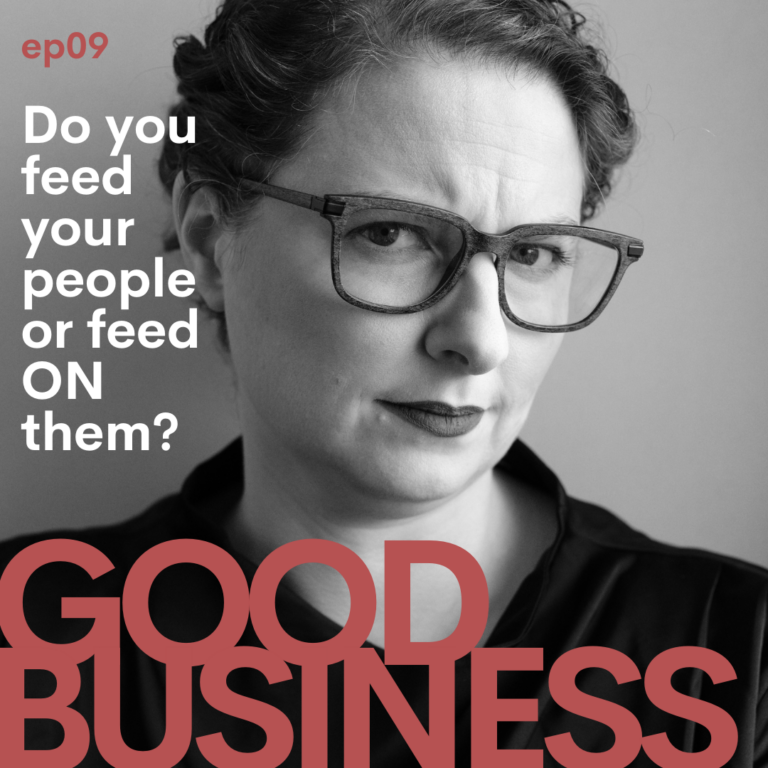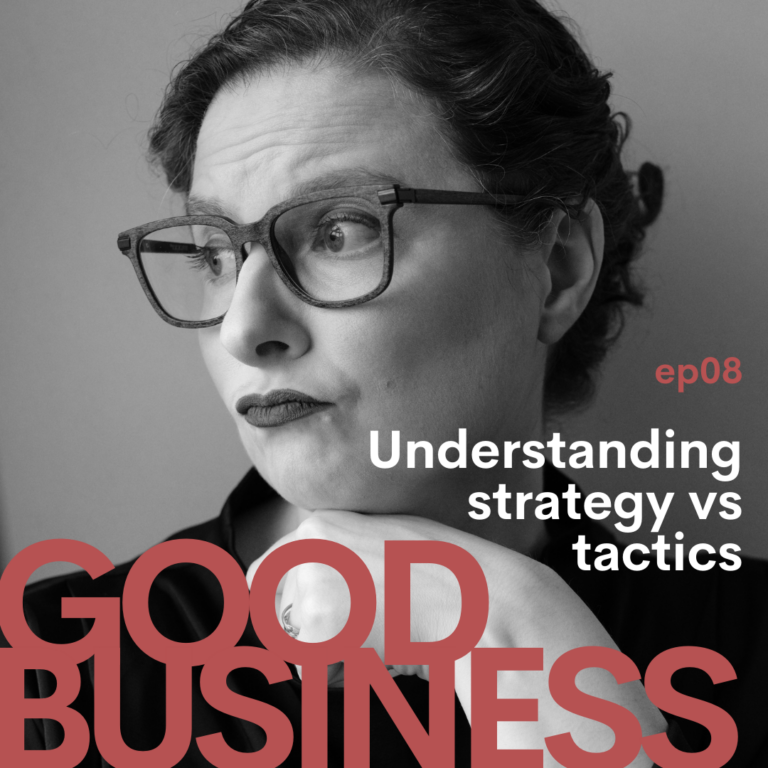Hello, fabulous listeners, and welcome back to another episode of Good Business. Today, we’re diving into a topic that might just flip the script on how you think about your offers: “Why Your Offerings Should Reflect What’s Best for You Before They Reflect What’s Best for Your Clients.” Sounds counterintuitive. I know. Well, stick around because I’m gonna break it down in a way that’s both practical and super powerful.
First, I’m going to talk about what all this has to do with niching and marketing, then I’ll explain exactly how to do this, and finally I’ll dig into how this improves your leadership positioning.
So let’s talk about niching.
We hear this buzzword all the time, right? “Find your niche!” But let’s be real, for many of us, this is both easier said than done and often downright impossible – at least the way most people teach it. I mean who wants to ONLY help one tiny group?
So why bother, right?
But actually, the thing that other marketers get right about niching is that it makes your work easier to market. After all, if you’re only talking to a narrow group of people, it’s way easier to say exactly what they need to hear.
And while I talk about niching based on your values quite a lot, the WAY you offer your work can also speak volumes to a far more specific – and easier to market to – audience. (Starting to connect now?) Essentially, your distinctive approach, your personality, your methodology, and your delivery can be just as effective as niching based on what your people ate for breakfast (probably more so).
So what are we REALLY talking about today? Essentially, we’re talking about creating and framing offers around how you perform at your best both so you can be happier and healthier in your business AND so you can market with more ease.
Rather than offering what everyone else in your industry is offering, craft offers that intrinsically work for you. For example, I do two hour calls once per month with most of my 1:1 clients. This allows me to both work with more people than if I had multiple sessions per month without having to work more than the three days a week that I enjoy.
It also means I get to deep dive with every single client rather than getting stuck in talking about more surface day-to-day issues. The structure itself helps my clients desire and expect the big-thinking, expansive strategy stuff I enjoy the most.
When you create offerings that reflect what’s best for you—your strengths, your weaknesses, and when and how you work best—you naturally carve out a niche without the stress of trying to fit into a pre-defined market segment.
Basically, you’ll attract a very specific group of people who like the WAY you work as much as they like what you’re offering. It also works because it ties into the ever-popular idea that authenticity rules. People crave it, and when you serve it, you attract those who resonate with how you do what you do.
Now, let’s get into why this not only positions you as a better leader and sets a sterling example for your clients. When you put yourself first—not in a negatively selfish way, but in a way that ensures your well-being and passion are at the forefront—you operate from a place of strength and clarity. This isn’t about ignoring your clients’ needs; it’s about ensuring you’re at your best to meet those needs.
When you’re thriving, your clients see a leader who is confident, self-aware, and energetic. This sets a powerful example. You’re teaching them to value themselves, to find their unique path, and to lead with integrity. By prioritizing what’s best for you, you’re showing them that the best way to serve others is by first ensuring you’re in the best position to do so.
And this brings us my holy grail of good business: promise-keeping. The most important thing in any business relationship is trust. When you design your offerings around what’s best for you, you’re more likely to keep the macro, outcome-based promises you make to the people you serve. Why? Because you’re not stretching yourself too thin or overcommitting in areas that drain you.
Promise-keeping isn’t just about doing what you say you’ll do; it’s about consistently delivering the quality and value you said you would. When the structure of your offerings aligns with your needs and preferences, you’re naturally more reliable. Your clients will know they can count on you, not just because you deliver, but because you deliver with excellence and enthusiasm in a well-designed container. And when clients feel like they can confidently trust the structure and boundaries you’ve set up – then you’ve set the stage for a high-trust, high-performing relationship.
Ok, that’s it for me today everyone! As always, thank you for tuning in to Good Business. I hope this episode has given you a fresh perspective on how to shape your offerings and lead with integrity. If you enjoyed this episode, don’t forget to subscribe, share, and leave a review. Until next time, always remember that it is just business. And that’s always personal.
More Episodes
The Content Series: The Necessity Myth | GB13
Content is NOT just another task to be checked off the list. And it shouldn’t be something you do because you think you’re supposed to. Because it is not the only path to business building. Plenty of people thrive at their work without writing blog posts or starting podcasts. It DOES however, help a LOT.
Your business model is making you miserable. Here’s how to fix it. | GB12
Today’s episode is about the fine art of designing offers and revenue models that work for YOUR work. Because when it comes to how you deliver what you do, one size most definitely does not fit all.
The case for loving your business as much as you love your work | GB11
Today’s episode is a piggy back on last week’s when we talked about how, in order to have real success as an entrepreneur, you have to actually love BEING an entrepreneur as much as you love doing your ACTUAL work. So today, as promised, I’m going to talk about all the reasons why being in business for yourself TODAY is actually pretty damn wonderful.
You don’t have to make a living at your life’s work | GB10
Starting a passion-based business is not the same thing as creating a business around your life’s work. And here’s the hard and simple truth, there are actually very few things people are willing to pay for. And the fundamental truth is that your life’s work might be wildly rewarding and profoundly difference-making – but it might not be something people are willing to pay for. And that is 100% ok.
The two leaders: Do you feed your people, or feed ON them? | GB09
Leadership is not an optional choice to be made, but rather something that WILL come with success, and how it’s essential you choose who YOU want to be from the two primary types of leaders. Because if you DON’T choose, you’re leadership style will continue to be muddled with bad habits and a tactical vacuum. It will affect who you are, how people see you, and the behaviors of those who follow.
Strategy vs. Tactics -OR- Why, “Doing Instagram,” is NOT a strategy, and that’s why it’s not working. | GB08
Understanding the difference between strategy and tactics is a critical skill in business leadership, and is the one most solopreneurs completely skip. Today’s episode offers a primer on what each actually ARE, how to use them, and how to ask yourself the harder questions that will lead to success.

